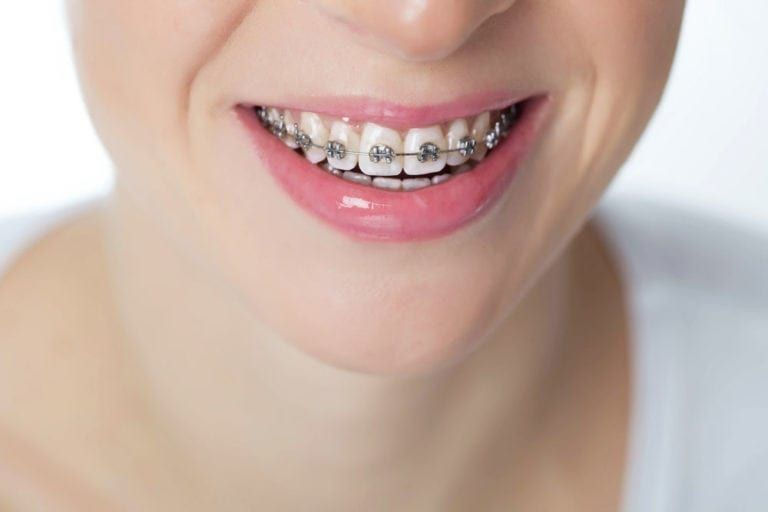Orthodontist vs. Dentist: What’s the Real Difference?
- dclinicdubai
- May 12, 2025
- 3 min read
When it comes to oral health, most people use the terms "dentist" and "orthodontist" interchangeably. While both professionals work to improve your dental well-being, their roles, training, and specializations are quite different. Understanding these distinctions can help you make better decisions about your care—especially when exploring specialized treatments like braces or aligners. Many people seeking orthodontists in Dubai are often referred by their general dentist, but knowing why and when to choose one over the other can be empowering.

Educational Background and Training:
Dentists and orthodontists both begin their careers by earning a dental degree. However, after completing dental school, orthodontists undertake an additional two to three years of specialized education focused exclusively on the alignment of teeth and jaws. This post-graduate training equips them to handle more complex structural issues that go beyond routine dental care.
Scope of Practice:
Dentists provide general oral care services such as cleanings, fillings, crowns, root canals, and gum disease treatment. They are your go-to providers for routine check-ups and overall dental health. Orthodontists, on the other hand, specialize in diagnosing and correcting misalignments in teeth and jaws. They focus primarily on orthodontic treatments like braces, Invisalign, retainers, and jaw repositioning devices.
Tools and Techniques Used:
While dentists use tools like drills, scalers, and X-rays to treat cavities and perform cleanings, orthodontists rely on specialized tools such as brackets, wires, aligners, and 3D imaging systems. Their techniques involve planning long-term treatment strategies to gradually shift the position of teeth and correct bite issues. Many orthodontists in Dubai employ cutting-edge digital scanning and AI-powered alignment technology.
Common Patient Needs and Treatments:
If you're dealing with toothaches, plaque buildup, or gum issues, a dentist is your best first stop. However, if you're experiencing crooked teeth, overbite, underbite, or gaps between teeth, an orthodontist is the right professional to consult. While dentists may offer some orthodontic solutions like clear aligners, only trained orthodontists can handle complex realignment cases with precision.
Frequency of Visits and Treatment Duration:
Dental visits are typically bi-annual unless ongoing treatments are needed. These appointments last about 30 to 60 minutes and focus on preventive care. Orthodontic treatment, by contrast, involves regular monthly or bi-monthly visits over the course of several months to years. Each session helps track progress and make adjustments, whether you're wearing braces or aligners.
Referral System and Collaboration:
Dentists and orthodontists often work hand-in-hand. A general dentist may identify misalignment issues during a routine exam and refer the patient to an orthodontist for specialized care. Once the orthodontic treatment is completed, the patient typically returns to their general dentist for routine maintenance. In cities like Dubai, it’s common for clinics to house both professionals under one roof for seamless collaboration.
Cost Differences and Insurance Considerations:
Routine dental care is generally more affordable and widely covered by insurance plans. Orthodontic treatment, due to its specialized nature and longer duration, often comes at a higher cost. However, many clinics now offer flexible financing options. Orthodontists in Dubai often provide detailed consultations and custom payment plans to make treatment accessible for a wide range of patients.
Age Considerations and Patient Demographics:
Dentists treat patients of all ages and handle a variety of oral health needs. Orthodontists typically see children, teenagers, and adults who require alignment correction. Though traditionally associated with adolescents, orthodontic care is now increasingly popular among adults looking to enhance their smile or correct long-standing bite issues.
Technology and Innovation in Both Fields:
Technology plays a crucial role in both professions, but in different ways. Dentists now use digital X-rays, intraoral cameras, and laser treatments. Orthodontists rely heavily on digital impressions, 3D modeling, and simulation software to plan and monitor complex treatments. The tech-savvy environment of orthodontists in Dubai makes them particularly adept at offering modern, minimally invasive options.
Final Thoughts:
While dentists and orthodontists share a foundation in oral health, their roles diverge significantly in terms of specialization, tools, and treatment goals. Dentists are essential for maintaining overall dental hygiene and addressing common issues, while orthodontists are specialists dedicated to correcting alignment and bite problems. Understanding these differences can guide you toward the right care at the right time. If you're looking for expert smile correction, the highly skilled orthodontists in Dubai offer world-class solutions tailored to your needs.


Comments